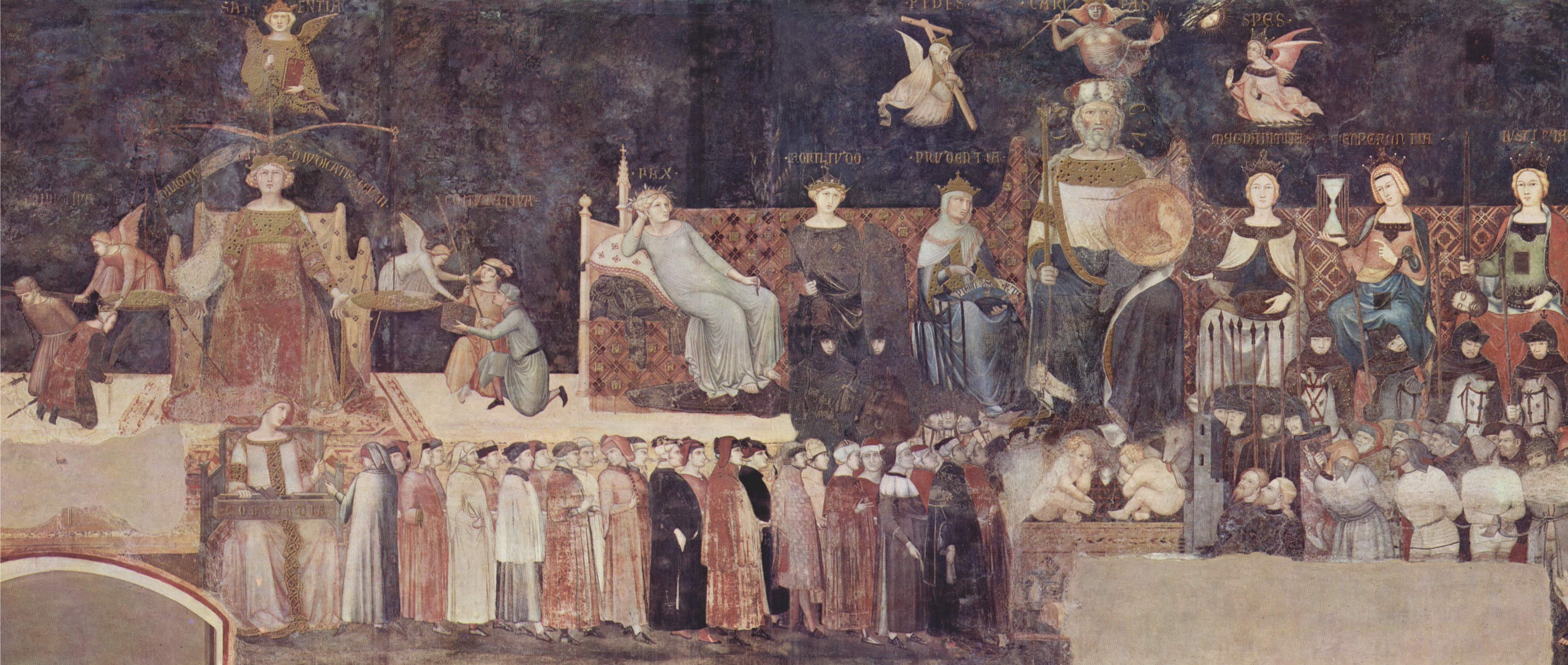
International Days of the Society for Legal and Institutional History of Flanders, Picardy and Wallonia
Oudenaarde, 31 May & 1 June 2019
The Society for Legal and Institutional History of Flanders, Picardy and Wallonia holds its annual "International days" on 31 May and the 1st of June in Oudenaarde (Belgium).
The theme of the conference is: « Vie et mort » (“Life & Death”)
The general theme of the “International Days” incorporates numerous historic and legal aspects of life and death. For example, ceremonies and customs regarding life and death (e.g. baptism, religious or civil wedding, funeral), civil law subjects (e.g. legal status, property law, etc.) or criminal law subjects (death penalty, pardon), life and death during wars (killed soldiers, shot soldiers, extermination camps, etc.), ...
This general theme does not exclude papers about other subjects regarding legal history or institutional history.
Presentations can be held in French, English or Dutch. Speakers have to send a summary to the organization (in French and/or English).
The conference will take place on Friday 31 May 2019 starting at 10 a.m. and on Saturday 1st of June 2019 starting at 9.30 a.m. in the conference room of the former convent of the Black sisters of Oudenaarde, Pamelekerkplein 4, 9700 Oudenaarde (along the Scheldt river, see:
Lunches and dinner will be served in a restaurant in the city centre.
The General Assembly of the Society will be held on Saturday 1 June after the sessions.
The detailed programme will be sent to the participants later. Participants have to register by sending the attached registration form by e-email to guido.lambeets@mil.be or by mail to M. Guido Lambeets, Royal Military Academy – SCGW, avenue de la Renaissance 30, 1000 Brussels (Belgium).
Proposals can be sent before 15 April 2019 to Stanislas HORVAT by e-mail (shorvat@skynet.be).
The registration fee amounts to 25 € (for documentation and coffee). Lunches on Friday and Saturday are 30 € p.p. each. Dinner on Friday evening is 60 € per person. The total amount should be paid at the same moment as the registration on the bank account of the Société d'histoire du droit et des institutions des pays flamands picards et wallons:
IBAN BE77 7370 5007 1342 - BIC KREDBEBB
If it is difficult to pay in advance, it will be possible to pay cash at the start of the conference Be aware that checks are no longer accepted in Belgium.
Participants will have to make their hotel reservation. A city map and a list of hotels will be sent by email to the participants after registration.
We all hope to welcome you in Oudenaarde in May.
Best regards,
The Board,
The President, The Secretary General,
Emese von BÓNÉ Christian PFISTER
The Vicepresidents, The Treasurer,
Tanguy LE MARC’HADOUR Pascal HEPNER
Michael MILO
Stanislas HORVAT
Société d'histoire du droit et des institutions des pays flamands, picards et wallons
|
|
Journées internationales d'histoire du droit et des institutions
Internationale rechtshistorische dagen
International Days for Legal and Institutional History
OUDENAARDE, 30/05/2019-01/06/2019
FORMULAIRE D'INSCRIPTION/ INSCHRIJVINGSFORMULIER/REGISTRATION FORM
À envoyer avant le 15 mai 2019 par courriel à/ Vóór 15 mei 2019 per e-mail te sturen aan/To be sent by e-mail before 15 May 2019 to: guido.lambeets@mil.be
Par courrier/Per post/By normal mail : M. Guido Lambeets, Ecole Royale Militaire–SCGW, avenue de la Renaissance 30, 1000 Bruxelles (Belgique/België/Belgium).
Madame/Mevrouw/Mrs – Monsieur/Mijnheer/Mr:
Adresse/Adres/Address :
Téléphone portable/Gsm/Cell phone:
E-mail :
Droit d’inscription/Inschrijving/Registration fee 25 €
Lunch vendredi/vrijdag/Friday 31/05/19
Nombre de personnes/Aantal personen/Number of persons : …… x 30 € Total : …. €
Lunch samedi/zaterdag/Saturday 01/06/19
Nombre de personnes/Aantal personen/Number of persons : …… x 30 € Total : …. €
Diner/Dinner vendredi soir/vrijdagavond/Friday night
Nombre de personnes/Aaantal personen/Number of persons : …… x 60 € Total : …. €
Total à payer/Te betalen eindbedrag/Total amount to be paid: …. €
Au compte bancaire /Op bankrekening/On bank account :
IBAN BE77 7370 5007 1342 - BIC KREDBEBB
Au nom de la Société / Op naam van / Account holder :
Société d'histoire du droit et des institutions
des pays flamands, picards et wallons
(fondée à Lille en 1929)
Journées internationales d'histoire du droit et des institutions
AUDENARDE, 31 mai et 1er juin 2019
Madame, Monsieur,
Les journées internationales d'histoire du droit et des institutions auront lieu cette année à Audenarde (Oudenaarde, Belgique), les 30 mai et 1er juin 2019.
Le thème qui a été retenu par le bureau de la Société est le suivant :
« La vie et la mort »
Le thème des Journées permet de couvrir de nombreux aspects de la vie et de la mort, tant historiques que juridiques. Citons, à titre d’exemple, les rites et coutumes de la vie et de la mort (p.ex. le baptême, le mariage religieux ou civil, l’enterrement), des matières de droit civil (p.ex. le statut de la personne, le droit patrimonial, etc.) ou de droit pénal (la peine de mort, la grâce), la vie et la mort pendant les guerres (soldats tombés au champ d’honneur, les fusillés, les camps d’extermination, etc.), ...
Ce thème général n’exclut pas, par ailleurs, la possibilité de communiquer sur d’autres sujets d’histoire du droit, de la justice et des institutions.
Les interventions peuvent être faites en français, en anglais ou en néerlandais ; les orateurs sont priés d’envoyer un résumé à l’avance aux organisateurs (de préférence en français).
Les participants seront accueillis le vendredi 31 mai 2019, à 9h30, à l’ancien couvent des sœurs noires (Zwartzusterklooster), Pamelekerkplein 4, 9700 Oudenaarde (le long de l’Escaut, voyez : .
Les séances de travail se dérouleront dans la salle de réunion de l’ancien couvent le vendredi 31 mai 2019, à partir de 10h00, et le samedi 1er juin 2019, dès 9h00. Les déjeuners seront pris au centre-ville.
L’assemblée générale de la Société se tiendra le samedi 1er juin 2019, à la fin des séances de travail.
Notre traditionnel diner se déroulera le vendredi soir dans un restaurant de la ville.
Le programme détaillé des journées sera communiqué ultérieurement aux participants, qui sont priés de renvoyer le formulaire d’inscription ci-joint avant le 15 mai 2019 par courriel à guido.lambeets@mil.be ou par courrier à M. Guido Lambeets, Ecole Royale Militaire – SCGW, avenue de la Renaissance 30, 1000 Bruxelles (Belgique).
Afin de nous permettre de dresser le programme définitif du colloque, nous remercions les personnes désireuses de communiquer de faire parvenir leur proposition de communication avant le 15 avril 2019 à Stanislas HORVAT (par courriel: shorvat@skynet.be).
Les frais d'inscription aux journées s'élèvent à 25 € et comprennent la documentation et les pauses-café ; les déjeuners des vendredi et samedi à 30 € chacun. La participation au diner du vendredi soir est de 60 € par personne. Ces sommes sont à verser au moment de l’inscription par virement bancaire européen sur le compte de la Société d'histoire du droit et des institutions des pays flamands picards et wallons:
IBAN BE77 7370 5007 1342 - BIC KREDBEBB
En cas de problème à effectuer le paiement par virement préalable, il est possible de payer sur place le premier jour du colloque. Notez que les chèques ne sont plus acceptés en Belgique.
Une liste d’hôtels à Audenarde et un plan de la ville seront envoyés par mail, dès son inscription, à chaque participant. Nous vous invitons à procéder vous-même à votre réservation dès que possible.
Au plaisir de vous rencontrer à Audenarde en mai prochain, nous vous prions d'agréer l'expression de nos sentiments très cordiaux.
Le bureau de la Société,
La Présidente,
Emese von BÓNÉ
Les Vice-Présidents,
Tanguy LE MARC’HADOUR
Michael MILO
Stanislas HORVAT
Le Secrétaire Général,
Christian PFISTER
Le trésorier,
Pascal HEPNER
Société d'histoire du droit et des institutions
des pays flamands, picards et wallons
Internationale rechtshistorische dagen
OUDENAARDE, 31 mei – 1 juni 2019
Mevrouw, Mijnheer,
De internationale dagen de Société d'histoire du droit et des institutions des pays flamands, picards et wallons zullen dit jaar op 31 mei en 1 juni in Oudenaarde (België) plaatsvinden.
Het thema dat door het bureau van de Société werd weerhouden, is:
« Vie et mort » (“Het leven en de dood”)
Het thema van de Rechtshistorische dagen dekt talrijke aspecten, zowel historische als juridische, van het leven en van de dood. Zo bijvoorbeeld de rituelen en de gebruiken rond het leven en de dood (bv. het doopsel, het kerkelijke of burgerlijke huwelijk, de begrafenis), materies uit het burgerlijk recht (bv. de staat van de persoon, het vermogensrecht, enz.) of uit het strafrecht (de doodstraf, de genade), gevolgen van oorlogen (gesneuvelden, gefusilleerden, uitroeiingskampen enz.) ...
Dit hoofdthema sluit overigens lezingen over andere onderwerpen van rechtsgeschiedenis of van de geschiedenis der instellingen niet uit.
De lezingen kunnen in het Frans, het Engels of het Nederlands doorgaan. De sprekers worden verzocht vooraf een samenvatting aan de organisatoren te bezorgen (bij voorkeur in het Frans).
De deelnemers worden op vrijdag 31 mei 2019 om 9.30u verwacht in het voormalig Zwartzusterklooster van Oudenaarde, Pamelekerkplein 4, 9700 Oudenaarde (langs de Schelde, zie:
De sessies gaan door in de vergaderzaal van het voormalige Zwartzusterklooster op vrijdag 31 mei vanaf 10 u, en op zaterdag 1 juni vanaf 9 u. De lunches zullen doorgaan in een restaurant in het stadscentrum.
De algemene vergadering van de Société gaat door op zaterdag 1 juni, na afloop van de sessies.
Ons traditioneel diner zal op vrijdagavond in een restaurant in de stad doorgaan.
Het gedetailleerde programma van de dagen zal later aan de deelnemers worden toegezonden. Deelnemers worden verzocht het bijgaand inschrijvingsformulier vóór 15 mei 2019 op te sturen per elektronische post naar guido.lambeets@mil.be of per gewone post aan M. Guido Lambeets, Koninklijke Militaire School – SCGW, Renaissancelaan 30, 1000 Brussel (België).
Met het oog op het vastleggen van het definitieve programma van het colloquium verzoeken wij de kandidaat-sprekers om hun voorgenomen onderwerp met titel vóór 15 april 2019 mee te delen aan Stanislas HORVAT (per e-mail: shorvat@skynet.be).
De inschrijving voor het colloquium bedraagt 25 € en dekt de documentatie en de koffiepauzes, de lunches van vrijdag en zaterdag kosten 30 € per persoon per dag. De deelname aan het diner van vrijdagavond kost 60 € per persoon. Gelieve bij de inschrijving het totale bedrag via Europese overschrijving te storten op de rekening van de Société d'histoire du droit et des institutions des pays flamands picards et wallons:
IBAN BE77 7370 5007 1342 - BIC KREDBEBB
Wie moeilijkheden ondervindt om vooraf de overschrijving te verrichten, kan bij aanvang van het colloquium nog ter plaatse betalen. Opgelet: checks worden in België niet meer aanvaard.
Een lijst van hotels en een stadsplan zullen aan elke deelnemer per e-mail worden toegestuurd bij zijn inschrijving. Reserveer zo snel mogelijk uw hotel.
Wij hopen u in Brussel te kunnen verwelkomen in mei eerstkomend. In afwachting groeten wij u alvast heel hartelijk,
Het bureau van de Société,
De Voorzitster,
Emese von BÓNÉ
De Ondervoorzitters,
Tanguy LE MARC’HADOUR
Michael MILO
Stanislas HORVAT
De Secretaris-generaal,
Christian PFISTER
De Penningmeester,
Pascal HEPNER
(source: ESCLH Blog)











